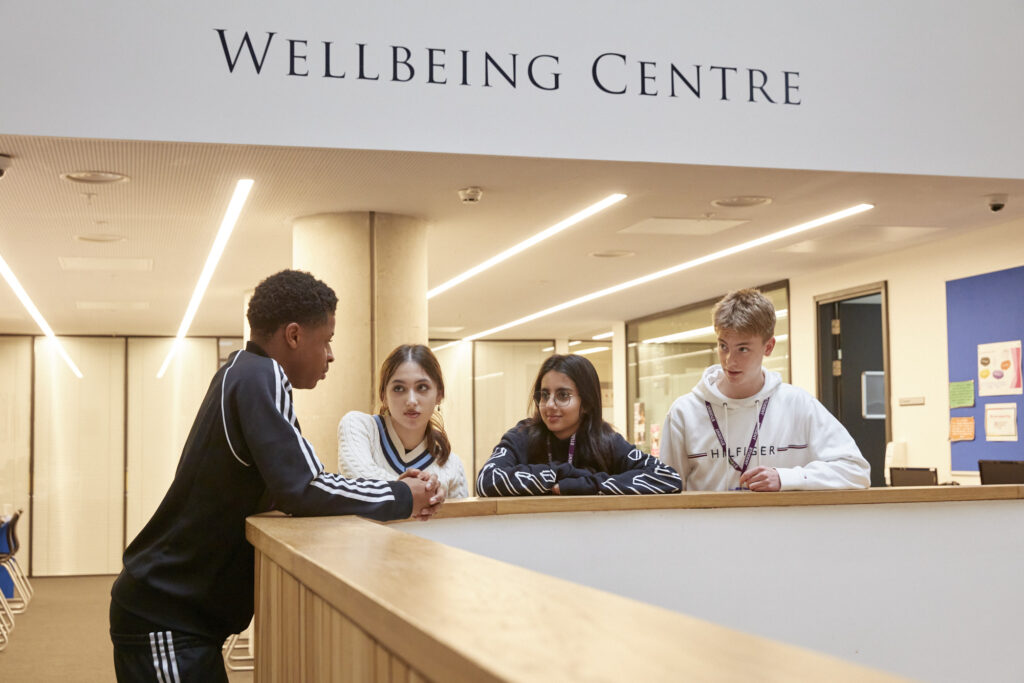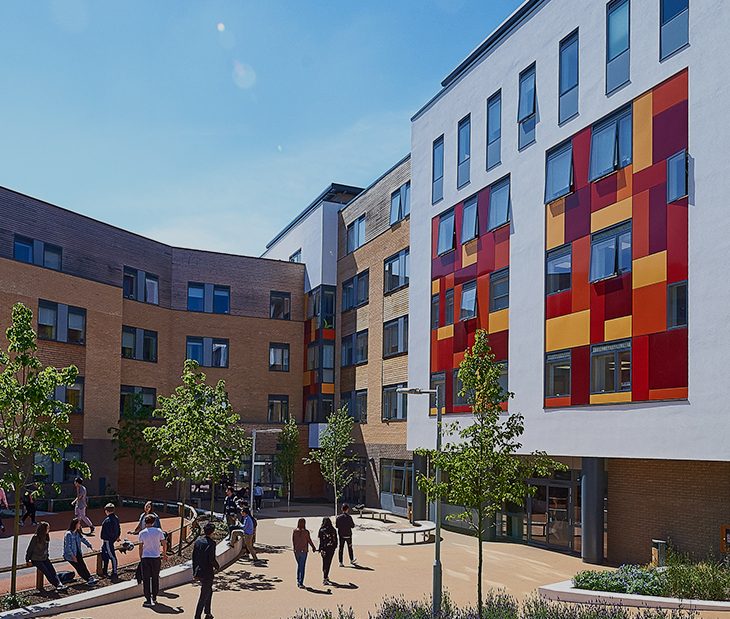Comparing the German and British Education Systems: A Detailed Guide for Students and Parents.
12th November 24

Discover the unique strengths of the British and German education systems with this concise guide, designed to help students and parents make informed choices. By comparing key stages, ages, and milestones, we highlight how the British system’s distinct approach could offer an enriching and globally respected pathway for your future. Whether you’re exploring study options abroad or simply curious, dive in to see why the UK might be the ideal choice.
Education System in Germany
The German education system is divided into three main stages: Kindergarten (pre-primary), Grundschule (primary), and secondary schooling, which is further split into Sekundarstufe I (lower secondary) and Sekundarstufe II (upper secondary). School attendance is compulsory for nine years in most Bundesländer (German states), except in Berlin, Brandenburg, Bremen, and Thüringen, where students must complete ten compulsory years. In Nordrhein-Westfalen, Gymnasium schooling extends for nine years, whereas other types of schools in the state require ten years of study.
Pupils are typically only allowed automatic promotion from Year 1 to Year 2; progression beyond that point is based on individual achievement levels. Should a student fail a school year, they may be required to repeat the entire year, a practice known as Sitzenbleiben.
British Education System
The British education system is structured into distinct stages, each catering to specific age groups and designed to guide pupils through important educational milestones.
- Primary Education (Key Stages 1 and 2): This stage is compulsory for children aged 5-11 and covers core subjects such as English, maths, and science.
- Secondary Education (Key Stages 3 and 4): For pupils aged 11-16, secondary education includes Key Stage 4, where students prepare for their General Certificate of Secondary Education (GCSE) These exams are essential for progression to further education.
- Further Education (Key Stage 5): After completing their GCSEs, students aged 16+ progress to Further Education (FE), where they can choose between A-levels, vocational courses, or apprenticeships. These options prepare students either for university (Higher Education) or for entering a specific career.

Primary Education in Germany
In Germany, pre-primary education, or Kindergarten, serves children aged three to six and is primarily offered through private Kindergärten. For those not yet ready to enter primary school, additional options like Schulkindergarten or Vorklasse provide a transitional year to support school readiness.
Primary education, known as Grundschule, typically spans four years, although in Berlin and Brandenburg it extends to six years. Younger students are usually taught by a single teacher, while older pupils have subject-specific instructors. Core subjects include German, maths, arts, sport, general studies, and a foreign language like English or French. Though final awards are not granted at this stage, students receive progress reports and secondary school recommendations in consultation with parents and school authorities.
Primary Education in the UK
In the UK, children typically attend nursery, or pre-primary education, before beginning formal schooling. This early education stage offers children up to age five an introduction to a school-like environment, helping them develop social and early learning skills before entering primary school. Most children attend nursery part-time during term time.
Primary education in the UK includes Reception, Key Stage 1, and Key Stage 2. Reception is the first year of primary school, with most children starting full-time in the September after their fourth birthday, though formal schooling is not compulsory until age five.
Key Stages 1 and 2 cover ages 5 to 11 (Years 1-6), focusing on essential foundational skills that support further learning. At the end of Key Stage 2, in Year 6, pupils typically transition to a secondary school.
While many independent schools in the UK provide continuous education from Key Stage 1 through to Key Stage 5, most state schools finish at Key Stage 2 or begin at Key Stage 3. Generally, students attend a primary school for Key Stages 1 and 2 before moving to a secondary school at age 11, where they continue with Key Stages 3, 4, and 5.

The Abbey DLD Group of Colleges (ADLD) consists of three independent sixth form colleges located in Cambridge, London, and Manchester, offering a wide range of academic study programmes.
Secondary Education In Germany
In Germany, secondary education (Sekundarstufe) begins after completing primary school (Grundschule), with school recommendations and parental consultation guiding the choice of institution. Secondary education is divided into lower secondary (Sekundarstufe I, grades 5-10 or 7-10) and upper secondary (Sekundarstufe II).
· Lower Secondary School
Lower secondary education offers various pathways, each designed to provide general academic grounding with exposure to vocational concepts:
- Hauptschule: This school focuses on foundational general education and typically culminates in a Hauptschulabschluss after grade 9 or 10. Subjects include German, mathematics, a foreign language, social studies, and work-related subjects. Graduates often enter vocational training or the Berufsgrundbildungsjahr, a year of vocational basics.
- Realschule: Offering broader academic training through grade 10, Realschule culminates in the Mittlerer Schulabschluss, providing access to vocational or academic upper secondary education. Core subjects include German, mathematics, a foreign language, and sciences like biology and chemistry.
- Gymnasium: Known for its rigorous academic focus, Gymnasium offers a comprehensive curriculum from lower to upper secondary. Students study subjects like German, mathematics, sciences, and multiple foreign languages, preparing for Sekundarstufe II and the eventual Abitur.
· Upper Secondary School
In Sekundarstufe II, students may continue at a Gymnasium or enter vocational institutions such as Berufsschule. The Abitur, awarded after completing grade 12 or 13, qualifies students for university entry. Alternatively, students can pursue the Fachhochschulreife at a Fachoberschule, granting access to technical universities. The Gesamtschule offers a more flexible option, combining all pathways within a single institution.

Secondary and Further Education in the UK
In the UK, secondary and further education are organised into three key stages: Key Stage 3, Key Stage 4, and Key Stage 5.
- Key Stage 3 (Ages 11-14): At this stage, students experience a shift towards more rigorous academic work. While they continue to follow a broad curriculum aligned with the national curriculum, they begin focusing more on core subjects. Toward the end of Year 9, students select subjects they will study at GCSE level.
- Key Stage 4 (Ages 14-16): During Key Stage 4, students focus on the subjects chosen for their GCSEs. Core subjects, including maths, English, and science, remain mandatory, while students also choose elective subjects in consultation with parents and teachers. After two years of study, students take their GCSE exams, a critical milestone that demonstrates their proficiency across selected subjects.
- Key Stage 5 (Ages 16-18): Known as Further Education, Key Stage 5 offers students the choice of A Levels, BTECs, or other vocational qualifications. This stage serves as a bridge to higher education or specialised career pathways, helping students prepare for university or the workforce.
Bachelor’s Degree in Germany
In Germany, Bachelor’s degree programmes typically span three years, although some fields, particularly engineering or dual study programmes (Duales Studium) combining academic study with practical training, may extend to four years. German degrees offer a balanced mix of breadth and depth, starting with a foundation of general education in the chosen field before progressing to specialised courses. Unlike the UK’s direct application to a specific subject, German students typically apply to a broader field of study and may have some flexibility in tailoring their degree path as they advance.
University admissions in Germany are decentralised and managed directly by each institution. The process generally involves submitting academic transcripts and certificates, such as the Abitur for German students or equivalent qualifications for international students. For certain highly competitive programmes, such as Medicine, students may need additional qualifications or take an entrance exam, like the Test für Medizinische Studiengänge (TMS), although entrance tests are less common in Germany. The admissions focus in Germany is also on academic readiness, with an emphasis on the applicant’s qualifications, especially for specialised or selective fields.

Bachelor’s Degrees in the UK
In the UK, Bachelor’s degree programmes are typically structured as three-year courses, although some fields, such as engineering or those with placement years, extend to four years. UK degrees are highly specialised from the outset, with students applying directly to study a specific subject. This approach allows students to concentrate intensely on their chosen field, providing an in-depth education that culminates in a focused degree. Admissions for UK universities are coordinated through UCAS (Universities and Colleges Admissions Service), where students submit a single application detailing their academic achievements and a personal statement tailored to their chosen subject. Certain competitive courses, like Medicine or Law, may require additional entrance exams (such as BMAT or LNAT) and possibly interviews, particularly at institutions like Oxford and Cambridge. The UK’s application process largely centres on academic readiness for a particular subject, emphasising a candidate’s qualifications and passion for their chosen field of study.
Comparison of German vs British Education System Comparison Table
To provide a clear overview, the comparison table below highlights the key differences between the German and British education systems:
| Education Stage | Germany | UK |
| Pre-Primary | Kindergarten (Age: 3-6, Duration: 3 years) | Nursery (Age: 3-5, Duration: 2 years) |
| Primary | Grundschule (Age: 6-10, Duration: 4 years, 6 years in Berlin & Brandenburg) | Primary (Reception, Key Stages 1-2, Age: 4-11, Duration: 7 years) |
| Lower Secondary | Sekundarstufe I (Age: 10-15, Duration: 5-6 years, varies by school type) | Key Stage 3 (Age: 11-14, Duration: 3 years) |
| Upper Secondary | Sekundarstufe II (Age: 15-18, Duration: 2-3 years) | Key Stage 4 (Age: 14-16, Duration: 2 years, GCSE) |
| Further Education | Gymnasium or Berufsschule (Age: 16-18, Duration: 2-3 years) | Key Stage 5 (Age: 16-18, Duration: 2 years, A-Levels or BTECs) |
| Bachelor’s Degree | Typically 3-4 years | Typically 3-4 years |
Why Study at Abbey DLD Colleges?
The Abbey DLD Group of Colleges (ADLD) consists of three independent boarding schools located in Cambridge, London, and Manchester, offering a wide range of academic study programmes.
At Abbey DLD we strive to achieve the highest academic standards whilst providing a welcoming, safe, high-quality learning and boarding experience for students from around the world. Our aim is to help our students achieve the academic success needed to progress to the UK and the world’s top universities, whilst also developing the personal skills and qualities to succeed at university and beyond.
We offer GCSEs, BTECs, A Levels and International Foundation Programmes to give our British and International students access to UK and international universities.
Do You know:
Every year Abbey DLD Students achieve outstanding results and move on to join some of the world’s most prestigious and highly-ranked universities. In 2023, 41% of our A Level students and 38% of our Foundation students progressed to Russell Group Universities, and 14 of our students progressed to study at Oxbridge Colleges or Medical School.
Conclusion
The British education system offers a unique and exciting path to academic and personal growth for German students considering studying abroad. With its focus on early specialisation through GCSEs and A-Levels, the UK allows students to dive deeply into subjects they are passionate about, often setting them up for strong university applications and a head start in their chosen fields. Beyond academics, British schools offer a diverse environment where students from around the world connect, bringing new cultural experiences and perspectives that enrich classroom discussions and daily life. For German students seeking a vibrant, internationally respected educational experience, studying at the Abbey DLD Colleges in the UK could be the perfect step towards an adventurous future with endless possibilities.
Please note that our three colleges, each with its own unique character, all share a common goal: to deliver outstanding educational and residential experiences for students aged 13 to 21. We offer Year 9, GCSE, A Level, BTEC and International Foundation Programme courses. We do not provide university-level undergraduate or postgraduate education.
Blog Author

Peggy Lardot
Senior Regional Manager, UK & Europe, Abbey DLD Group of Colleges
E: Peggy.Lardot@abbeydld.co.uk
T: +44 (0)7585 308324
Get in touch today:
Since 1931, the Abbey DLD Group of Colleges has been synonymous with high-quality education, top university destinations, and enriching academic and pastoral experiences. Abbey DLD students graduate equipped with the skills to progress in their university studies and future careers, with friends from all around the world, and having made memories to remember for a lifetime.
Want to learn more about studying at the Abbey DLD Group of Colleges? Simply complete the form below and one of our admissions advisors will be in touch with you shortly.





